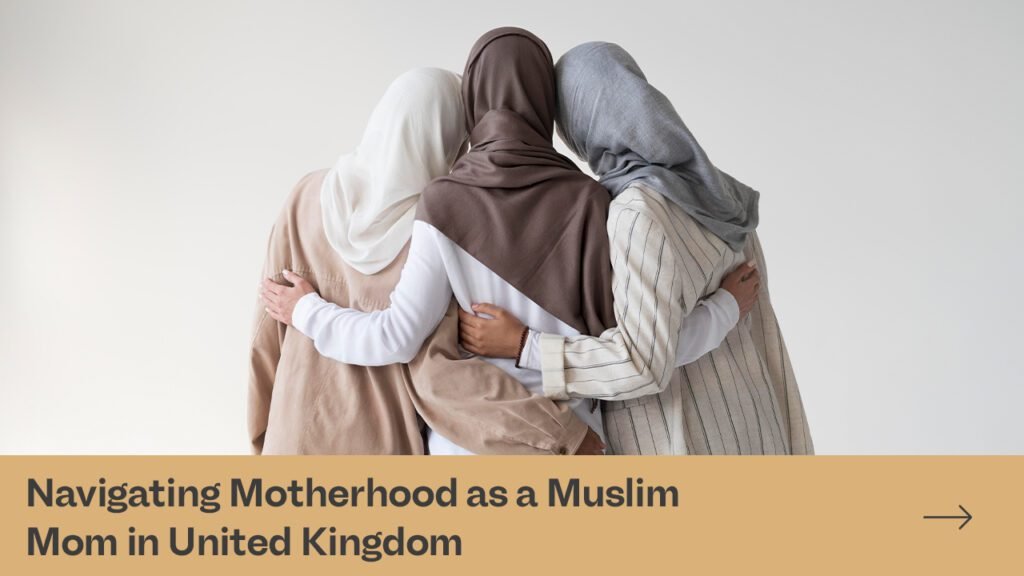Raising children is a multifaceted endeavor, made increasingly complex as society continues to evolve. For Muslim mothers, parenting comes layered with a unique set of cultural, religious and societal challenges. As we move deeper into the 21st century, fresh obstacles have emerged alongside longstanding issues, painting a intricate portrait of the struggles Muslim moms face today. Both new and old hurdles intertwine to test mothers with a diverse array of demands. While the core of their faith provides guidance, Muslim mothers must skillfully adapt timeless principles to fast-changing contemporary realities. This blog explores the key challenges confronting Muslim moms in modern United Kingdom and potential strategies to overcome them. By examining the intersections of faith and society, we can equip mothers with insights to skillfully nurture the next generation.
Key Challenges Faced
Understanding the Context
Like all parents, Muslim mothers are influenced by their faith, cultural heritage, and the society they live in. Islam provides more than just faith; it offers a way of life with values and principles that shape parenting approaches. While the core Islamic principles have remained constant over time, the social context that Muslim moms apply them in has changed dramatically. This evolution of society has introduced new challenges that Muslim mothers must navigate in contemporary times. Though the foundations remain the same, translating Islamic values into parenting practices requires adaptability and wisdom in the modern era. Muslim mothers face the task of preserving timeless principles amidst a rapidly changing world.
Religious and Cultural Preservation
Preserving Islamic and cultural identity poses a major challenge for Muslim mothers, especially in non-Muslim majority countries. The rise of social media and internet has created a global exchange of ideas that blends cultural influences. While exposure to diversity can be beneficial, it can also make maintaining Islamic values and cultural traditions difficult.
Finding balance between heritage and an interconnected world is demanding. Mothers must foster deep appreciation for rich Islamic traditions and history in their children, while also nurturing openness, tolerance, and adaptability to diversity. This already tricky balance is further complicated by the persistence of Islamophobia and negative stereotypes that can marginalize Muslim youth. Mothers carry the weight of sustaining cultural identity amidst pressures to conform.
Related Post: Hadiths- The Science Behind Them
Raising Children in a Digital Age
The digital age introduces another layer of complexity for Muslim mothers – managing their children’s online presence. The internet’s dual nature becomes apparent; while it provides educational value by connecting users to resources and communities, it also exposes impressionable youth to potentially harmful content and cyberbullying. Muslim mothers are tasked with promoting digital literacy and online safety so their children can harness technology positively. They must also set reasonable limits on screen time as digital immersion increases. Finding balance between the benefits and risks of the internet represents a key modern parenting hurdle. Mothers now guide the next generation through both the physical and virtual worlds.
Islamophobia and Discrimination
Rising geopolitical tensions have fueled an increase in Islamophobia and discrimination, creating additional struggles for Muslim mothers. They carry the responsibility of preparing children to face potential prejudice while also cultivating resilience and self-assurance. Mothers must advocate for their children’s rights in educational and community spaces. Discrimination inevitably leads to difficult but necessary dialogues with children about identity, acceptance, and justice. Through it all, mothers must empower the next generation to stand tall in the face of ignorance. Their guidance helps children emerge as strong citizens ready to enrich their nation.
Gender Roles and Empowerment
Muslim mothers also face the challenge of re-examining traditional gender roles as society rapidly evolves. They wrestle with various interpretations and norms surrounding women’s status, striving to empower their daughters within Islamic principles. Mothers must find balance between timeless Quranic teachings and contemporary views on gender equality and female empowerment. With wisdom and compassion, mothers can help their daughters become strong Muslim women who enrich their communities. They carry the task of weaving together the old and new to raise the next generation.
Overcoming Challenges
Muslim mothers can overcome these challenges by:
- Building their Islamic knowledge through scholars, lectures, and study circles. This provides a deeper understanding of applying Islamic principles in modern contexts.
- Creating a nurturing home environment that instills Islamic values and embraces cultural traditions. This helps preserve Muslim identity.
- Engaging in religious practices together as a family, like praying, fasting, and celebrating festivals. This fosters a sense of belonging.
- Promoting educational Islamic apps, websites and videos to positively engage children with technology.
- Having open discussions with children about faith, tolerance, and responding to discrimination with patience and kindness.
- Participating in interfaith communities and dialogues to increase understanding and combat Islamophobia.
- Challenging stereotypes and emphasizing education and ambition for daughters. This promotes gender equality aligned with Islamic principles.
Conclusion
Muslim mothers can successfully overcome modern parenting struggles with wisdom, balance and community support. The aim is to nurture children grounded in Islamic values of compassion, tolerance and justice, while being active and proud United Kingdom citizens.


